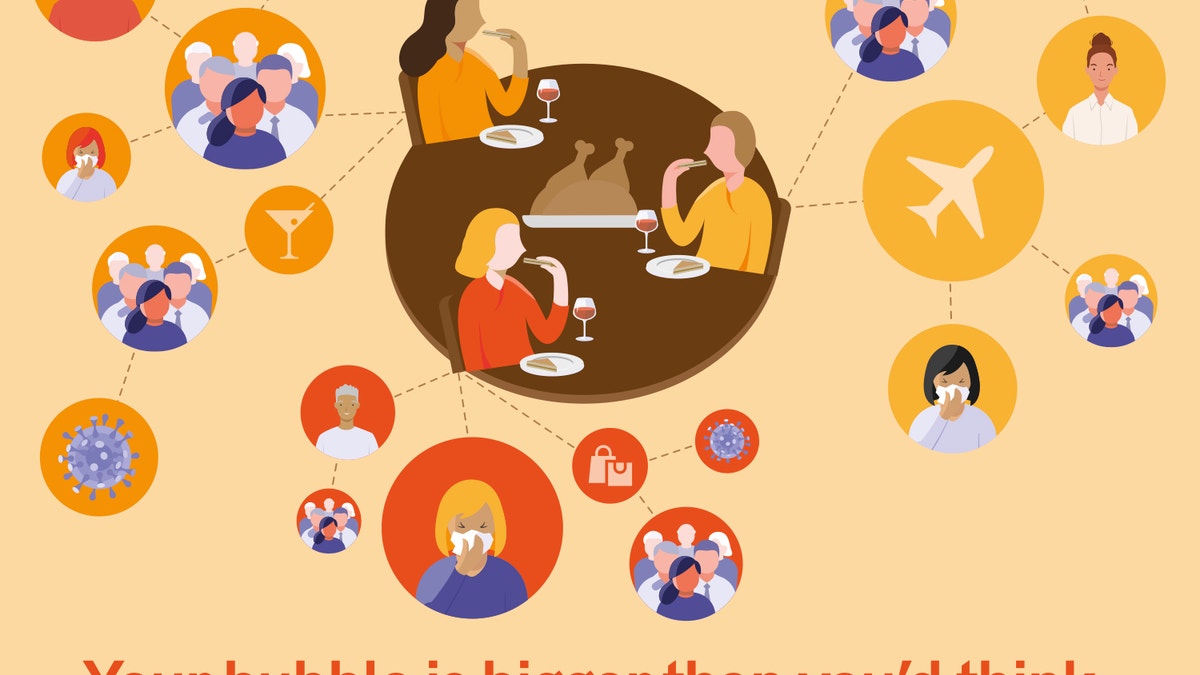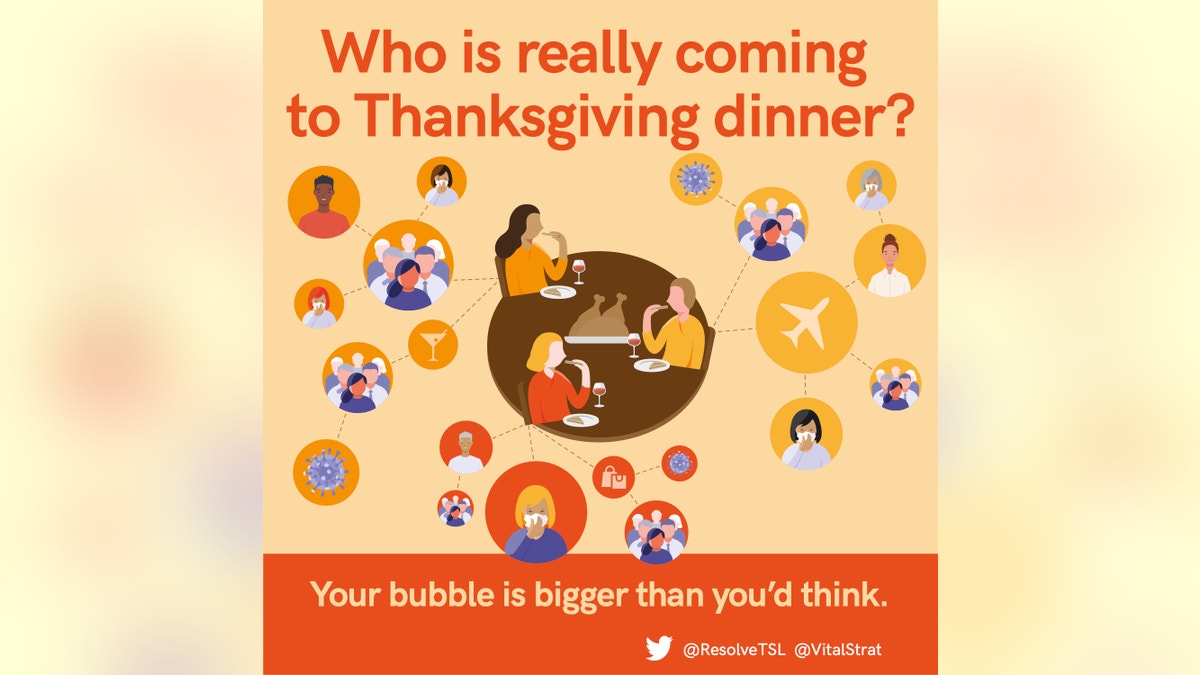Capitol Hill on edge as more lawmakers test positive for COVID-19
Fox News congressional correspondent Chad Pergram has the latest on 'Special Report'
For many people, this will be very different Thanksgiving. Still others don’t plan to change their holiday routine. But there’s a real risk of an uninvited guest barging in -- COVID, which continues to surge exponentially in much of the country. Although many people become infected without getting seriously ill, some do get seriously ill – and one American dies from COVID every minute.
Although there’s very encouraging news on vaccines, it will be many months before vaccines will allow us to get to the new normal–and that’s if everything goes well. Therefore, sadly, we’ll need to scale back our celebrations this year and avoid gathering with people from other households.
It’s estimated that more than 3 million Americans are currently contagious with coronavirus, and many don’t have symptoms. In places with widespread community transmission, COVID will be a silent, dangerous guest. The people we get together with – and put at risk -- aren’t strangers. They’re friends. They’re family.
Most new cases are now linked to smaller gatherings in private homes. People who are cautious in public often drop their guard at home around people they know – with devastating results.
DR. NICOLE SAPHIER: CORONAVIRUS AND THANKSGIVING — HERE’S MEDICAL ADVICE FOR SAFE HOLIDAYS
The increase in COVID cases in Canada after their Thanksgiving, which took place on October 12, provides a stark warning. And Thanksgiving in Canada is not nearly as big a deal as it is here in the US. Even with the pandemic, nearly half of Americans plan to travel for Thanksgiving this year.
CDC just issued new guidance urging against any travel over the holiday. For those unable or unwilling to cancel travel plans, the agency recommends doing so as safely as possible. This includes following the 3 W’s – wearing masks, watching distance from others, and washing hands frequently (or using hand sanitizer).
CLICK HERE TO GET THE OPINION NEWSLETTER
For those still planning on holiday get-togethers with people outside their immediate household – including college students returning home for the long weekend – these tips can limit the spread of disease.
More from Opinion
- If you feel sick, stay home, wear a mask near others, and isolate as completely as you can. If you test positive for COVID, stay home and don’t have others over to visit.
- Scale back the number of people attending. Every person brings risk – as this graphic we just released shows.

Many states have already placed limits on household gathering sizes. The lower the number of people, the lower the risk. Avoid mingling with people not from the same local area. When people travel, the virus travels.

- Wear a face mask at all times you’re not eating or drinking. This is a drag, and feels silly with family, and is hard but so important. Some people use straws to drink under their masks.
- Maintain 6 feet of distance from others whenever possible. This is hard with family and in small rooms. But try, especially with people not in your “bubble”.
- Keep the volume down. The louder people sing, shout, or talk, the more virus they can spread.
- Spend as much time outdoors as possible, as weather permits. If you must be indoors, open windows and use fans that blow air to the outside to get as much fresh air and as much ventilation as possible.
- Don’t serve meals pot-luck style. Have one person designated to handle and serve food. Don’t share plates, utensils, or drinking glasses.
- Wash your hands after touching any potentially contaminated surfaces and before touching your mouth, nose, or eyes.
- Avoid in-person shopping at crowded malls. Most retailers are offering their best Black Friday deals online this year.
This year, instead of big multi-household holiday gatherings, consider using Zoom, FaceTime, Google Meet, or another video conferencing service. It can’t replace getting together in person, but it can help maintain personal connections with friends and family even if we remain physically distant – and it can include people who wouldn’t have able to join in person. Those who feel technologically challenged can be coached on how to set up their mobile phone or desktop computer.
CLICK HERE TO GET THE FOX NEWS APP
None of this is ideal. It’s not how any of us want to celebrate such an important holiday. But it’s essential that we take these precautions to protect people – especially those who are older or otherwise more vulnerable – from getting infected, getting sick, and dying.
In-person gatherings over Thanksgiving could mean funerals by New Year’s. “Better a Zoom Thanksgiving than an ICU Christmas.” Let’s make sure that the next time we gather, no one is missing.










































